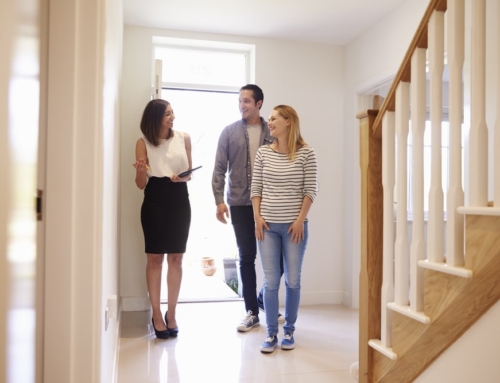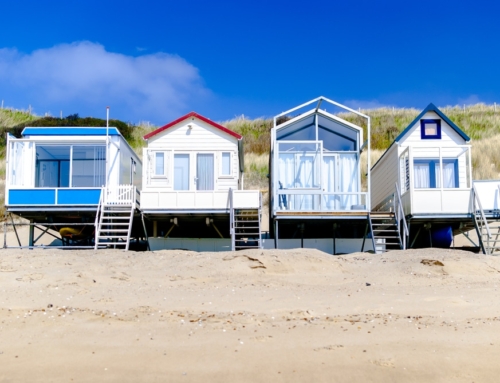Is renting or home buying right for you in retirement? The answer depends on both your financial situation and your health.
We recently received a couple of questions dealing with couples who are in their sixties, seventies and eighties that are planning to move and wonder whether they should buy or rent their next home.
One of our correspondents wrote: “In the column you recently wrote you gave advice to a 63- and 64-year old couple who were contemplating buying a house, but there wasn’t any mention of the future. They aren’t old, but if the wife is left alone, will she receive any part of his pension? Social Security? It would seem they need to consider future sources of retirement income after one of them dies.”
The next question went as follows: “My husband is 85 years old and I am turning 80 next month. Our primary reason to move from our house to the Philadelphia area is that our adult children live there with their spouses and children, as well as our grandchildren. We are concerned about the real estate market stability in Philadelphia and its suburbs. We want your opinion as to whether at our age it is better to rent or buy an apartment.”
We put these two questions together to talk a bit about what people should think about when they are moving, looking for new homes but they may be approaching retirement or are well into retirement years, even if they still work.
A couple in their 60s may have on average 20 or 30 years to live. A couple in their 80s may have 10 years or so to live. None of us know what our expiration date will be so we all have to make decisions that are best for us given our age, financial situation and desire or willingness to own a home.
Most homeowners live in a home an average of seven or so years, but the wear and tear of moving from one place to another is quite stressful from a physical perspective. Moving also takes a huge emotional toll on people. The stress of moving along can be enormous. As we get older, we all have to make decisions that start to include our health as well. If a couple is in their 60s but not too healthy, their decision on moving and whether they buy or rent might be quite different than a couple in their 80s that are in great health and very active.
We have a friend whose mother is in her mid 90s, owns her own condominium, lives alone, is still active and still drives everywhere. (For the record, they wish she wouldn’t, but she keeps passing her driving test.) For her, the decision to buy the right place when she was in her late 80s was a no-brainer. She had the income and assets to buy the place she wanted and had the physical strength to move. She has now lived in her condominium for the past six years and still loves it.
On the other hand, we know people in their late 70s that have health issues and while they have the economic means to buy a place and move, the toll the home buying and selling process has taken on them makes the whole process questionable.
There is no magic formula when you are in your 60s and above relating to buying vs moving. The decision is a very personal one. Here are some issues to think through carefully:
Do you have the money? Determining whether you have the financial resources to sell and buy a home. You also need to make sure you have the financial resources to cover the expenses of carrying the ownership of the home including repair costs that come up and the costs of the move.
Can you find a home that meets your needs? Once you determine you have the resources and you’re comfortable that you will continue to have the income and financial stability to own a home and maintain the home, you should take the time you need to find the right home that will suit your needs, lifestyle and pocketbook as you age. You can also figure out any tax benefits that you might receive as a homeowner vs. a renter and factor that into the decision. (Your tax preparer can help crunch the numbers.)
Factor in your health. Homes require physical work, and houses require more than condos. You need to determine whether you are healthy enough to carry the responsibilities of owning a home. Whether a home is a single family or condominium, if you’re ultimately responsible for replacing hot water heaters, dishwashers, cleaning of the windows and all other items that go along with owning a home, you need to make sure you’re up to it and believe that you will be up to it as you age.
Many years ago, Sam’s mom was looking to sell her home and buy a home that she could live in for the rest of her life. She was healthy enough to undertake the move at the time but knew that she’d want a home that would require limited maintenance, and would be friendly to her as she aged.
So, she moved into a condominium development where she’s be a part of a community but where most maintenance issues were taken care of by others. She also moved into a single-level condominium on the first floor of a building to avoid having to walk up and down stairs. She lived there quite happily until she passed away, some 15 years ago.
If you are married, in a partnership or live with someone, the decision-making process has to be a joint, taking into account all of these issues for both of you. You may never be too old to buy a home but there may be many instances where renting a home may be a better decision than owning. While we have not addressed your specific question, we hope our overall answer helps you make the decision that will be best for you.







Leave A Comment